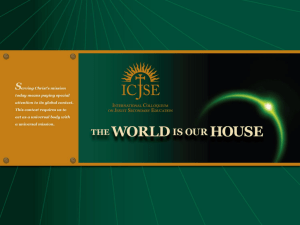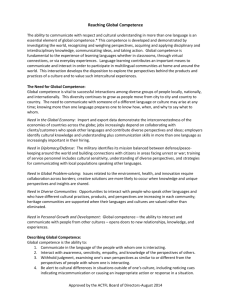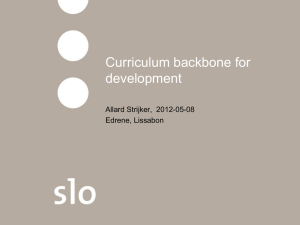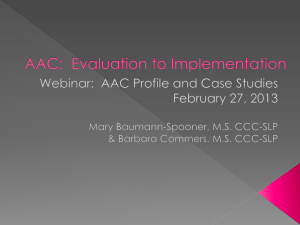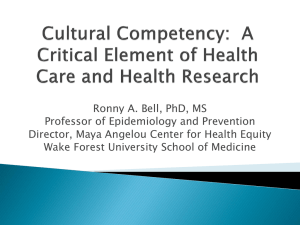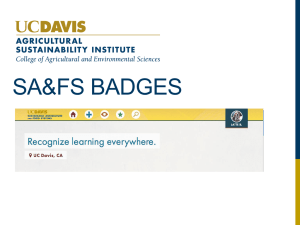Work that Demonstrates Global Competence
advertisement
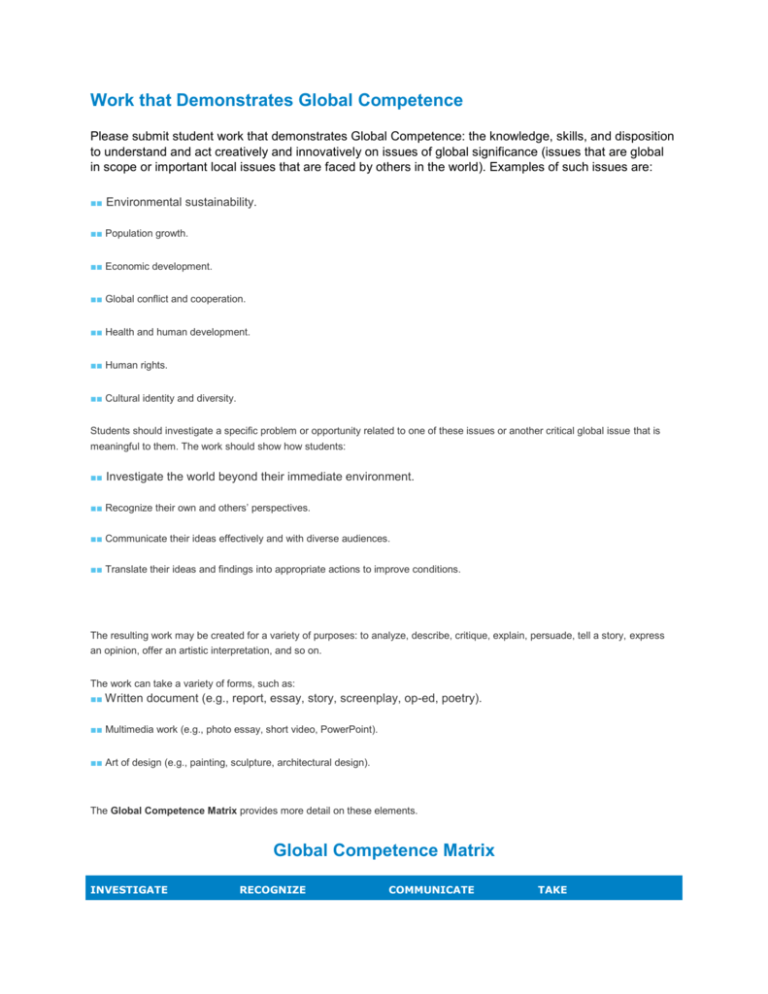
Work that Demonstrates Global Competence Please submit student work that demonstrates Global Competence: the knowledge, skills, and disposition to understand and act creatively and innovatively on issues of global significance (issues that are global in scope or important local issues that are faced by others in the world). Examples of such issues are: ■■ Environmental sustainability. ■■ Population growth. ■■ Economic development. ■■ Global conflict and cooperation. ■■ Health and human development. ■■ Human rights. ■■ Cultural identity and diversity. Students should investigate a specific problem or opportunity related to one of these issues or another critical global issue that is meaningful to them. The work should show how students: ■■ Investigate the world beyond their immediate environment. ■■ Recognize their own and others’ perspectives. ■■ Communicate their ideas effectively and with diverse audiences. ■■ Translate their ideas and findings into appropriate actions to improve conditions. The resulting work may be created for a variety of purposes: to analyze, describe, critique, explain, persuade, tell a story, express an opinion, offer an artistic interpretation, and so on. The work can take a variety of forms, such as: ■■ Written document (e.g., report, essay, story, screenplay, op-ed, poetry). ■■ Multimedia work (e.g., photo essay, short video, PowerPoint). ■■ Art of design (e.g., painting, sculpture, architectural design). The Global Competence Matrix provides more detail on these elements. Global Competence Matrix INVESTIGATE RECOGNIZE COMMUNICATE TAKE THE WORLD PERSPECTIVES IDEAS ACTION Students investigate the Students recognize their Students communicate Students translate their world beyond their own and others’ their ideas effectively with ideas and findings into immediate environment. perspectives. diverse audiences. appropriate actions to improve conditions. Students: Students: Students: Students: Identify an issue, generate Recognize and express Recognize and express how Identify and create a question, and explain the their own perspective on diverse audiences may opportunities for personal significance of locally, situations, events, issues, perceive different or collaborative action to regionally, or globally or phenomena and identify meanings from the same address situations, events, focused researchable the influences on that information and how that issues, or phenomena in questions. perspective. affects communication. ways that improve Use a variety of languages Examine perspectives of Listen to and communicate and domestic and other people, groups, or effectively with diverse Assess options and plan international sources and schools of thought and people, using appropriate actions based on evidence media to identify and identify the influences on verbal and nonverbal and the potential for weigh relevant evidence to those perspectives. behavior, languages, and impact, taking into account strategies. previous approaches, conditions. address a globally significant researchable Explain how cultural question. interactions influence Select and use appropriate situations, events, issues, technology and media to Analyze, integrate, and or phenomena, including communicate with diverse Act, personally or synthesize evidence the development of audiences. collaboratively, in creative collected to construct knowledge. coherent responses to varied perspectives, and potential consequences. and ethical ways to Reflect on how effective contribute to improvement globally significant Articulate how differential communication affects locally, regionally, or researchable questions. access to knowledge, understanding and globally and assess the technology, and resources collaboration in an impact of the actions Develop an argument affects quality of life and interdependent world. taken. based on compelling perspectives. evidence that considers Reflect on their capacity to multiple perspectives and advocate for and draws defensible contribute to improvement conclusions. locally, regionally, or globally. For a copy of the Global Competence Matrix you can print, please Download the PDF. For a copy of the Global Competence Content-Area Matrices you can print, please Download the PDF. Who Should Submit Work? EdSteps seeks samples of writing from authors of all ages, including: ■■ From students in early childhood and elementary, middle, high school and from college and graduate students. ■■ From individuals in the workplace. ■■ From teachers of all subject areas. ■■ For any audience or purpose, both within the United States and globally. ■■ In any form, genre, or media. Building a Continuum of Student Work Demonstrating Global Competence Once enough work samples are collected, the samples will be evaluated by readers from across the country using the Global Competence Matrix. We invite you to help us build the continuum by participating as a reader when the work samples are available later this year. Note that when you submit, you will need contact information for the author's parent or guardian, if the author is under the age of 18. For a copy of the permission slip you can print, please click here. You will also be asked a few simple questions about each piece of work, a copy of which can be downloaded here. Why Global Competence? Teaching and assessing student work that addresses issues of global significance — around the world or in students’ own backyards — are essential to a world-class education system. The global marketplace is real, and today’s schools must prepare students to participate, interact, and thrive in it. The more our students know about recognizing the challenges and opportunities of an interconnected world, the better they will be able to work in it and improve it. Our students’ well-being, the vitality of our communities, and the welfare of our nation depend on it. Resources for Global Competence: Here are a few helpful resources related to Global Competence. Reach the World Reach the World (RTW) is a unique nonprofit organization with the mission of linking students and teachers to online, global journeys that have the power to expand learning beyond the four walls of the classroom. Primary Source Primary Source promotes history and humanities education by connecting educators with people and cultures throughout the world. Global Youth Leadership Institute GYLI delivers transformative educational programs that foster global pluralism, collaborative leadership, and environmental care and that help students and teachers become fully engaged citizens of the world Facing the Future Facing the Future engages students in learning by making academics relevant to their lives. We empower students to think critically, develop a global perspective, and participate in positive solutions for a sustainable future. MHz Networks MHz Networks is an independent, non-commercial television broadcaster delivering international, educational programming and providing diverse cultural perspectives for a globally-minded audience. World Savvy World Savvy is a global education nonprofit serving youth and educators through three core programs in three offices nationwide. Their mission is to educate and engage youth in community and world affairs, to prepare them to learn, work and live as responsible global citizens in the 21st century. Creative Change Creative Change Educational Solutions (CCES) is a nonprofit organization advancing educational leadership and transformation through a lens of sustainability. CCES helps educational institutions use renewable energy, brownfields redevelopment and other sustainability sectors as platforms for instructional innovation and delivering on the promise of educational equity.


